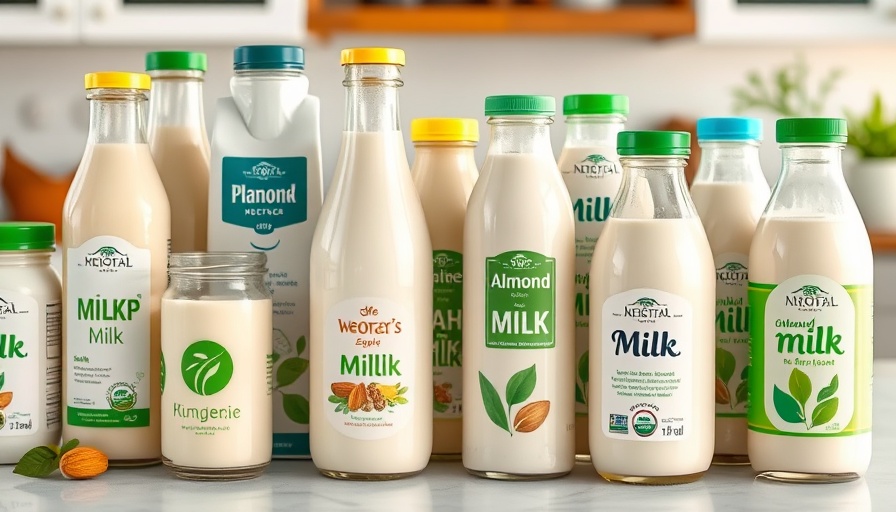
Understanding Nutritional Needs for Toddlers
As parents, guardians, and caregivers, the utmost priority is ensuring that toddlers receive the right nutrition for their growth and development. However, the increasing popularity of plant-based milks has raised questions about whether these alternatives meet the specific dietary needs of our youngest family members. Recent findings indicate that many plant-based milks—ranging from almond to oat—often fall short in providing essential nutrients critical for toddlers, such as calcium, vitamin D, and protein.
The Nutrient Shortcomings of Plant-Based Milks
Research highlights a significant concern regarding plant-based milks and toddler nutrition. Most commonly available options are limited in essential vitamins and minerals. For instance, while these milk alternatives might contain heart-healthy fats, they do not provide sufficient protein necessary for muscle development and overall growth in toddlers. Additionally, key vitamins like B12 and iron—critical for a developing brain—are frequently missing or present in measly amounts.
What Makes Cow's Milk a Better Choice?
Cow's milk, in contrast, is rich in several vital nutrients including calcium, vitamin D, and protein, which are imperative for a toddler's bone development and overall health. While it is essential to occasionally offer alternatives, especially for those with lactose intolerance or dairy allergies, the consensus among many nutritionists and pediatricians remains clear: traditional dairy can more adequately support a toddler's nutritional needs.
Exploring Alternative Nutritional Sources
For families who prefer to limit dairy, it is important to seek out fortified plant-based milks that provide additional nutrients. Some options on the market are enhanced with extra calcium and vitamin D, but it is recommended to review labels closely and ensure these nutrients are included. Foods rich in iron, leafy greens, legumes, and fortified cereals can play supplemental roles in satisfying a toddler's diverse nutritional needs. Consulting with a pediatrician or a registered dietitian can help families find a balanced approach tailored to their child’s requirements.
In this era where food choices are plentiful and diverse, understanding and making informed decisions about what nourishes our children is paramount. Education about these dietary complexities is not just beneficial; it is a commitment to fostering healthier lifestyles for ourselves and future generations. Awareness and knowledge will empower parents and caregivers to create optimal dietary environments for their toddlers.
 Add Row
Add Row  Add
Add 



 Add Row
Add Row  Add
Add 

Write A Comment